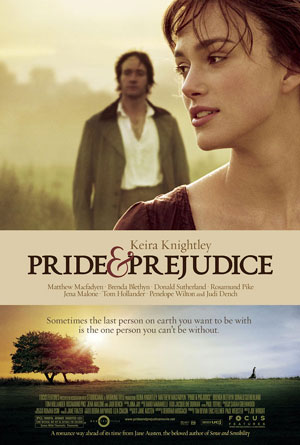 There are some days when you just can’t believe who you’re talking to. One of these came as I was seated next to Donald Sutherland, one of the best – and eternally coolest – actors of all time. To even try to list his best film credits would be an exercise in overkill – for every M*A*S*H or JFK you mention you have to make sure to include a Dirty Dozen or a Klute. You just scratch the surface of his impressive history.
There are some days when you just can’t believe who you’re talking to. One of these came as I was seated next to Donald Sutherland, one of the best – and eternally coolest – actors of all time. To even try to list his best film credits would be an exercise in overkill – for every M*A*S*H or JFK you mention you have to make sure to include a Dirty Dozen or a Klute. You just scratch the surface of his impressive history.
In person, Sutherland is no less impressive. He came to the press day dressed quite nicely, looking a lot like a college professor. Which is fitting, considering the answer he gave to the first question. The man is very, very smart; that cannot be denied. And like most other actors who have been around for a while he’s just bursting with great stories about great films and actors. It’s perfectly transcendent to listen to Sutherland reminisce about hanging out with Al Pacino two decades ago. I hope it’s half as enjoyable for you to read.
Q: We heard from the director that you exchanged quite a few emails, asking him a lot of questions before you decided you wanted to do this film. He said you had very specific questions for him, such as about the farming at the time, and men’s facial hair.
Sutherland: It’s a very complicated period that she was writing about, Jane Austen. And she’s writing about women, you know. When you think about the Pride & Prejudice of the 1940s, you think of it as Laurence Olivier’s Pride & Prejudice. If you think of the BBC Pride & Prejudice, you think of it as the Pride & Prejudice with Colin Firth. But she was writing about women. She wasn’t writing about men, she was writing about women.
She was writing about the shift from consanguinial to conjugal relationships. Primogeniture of enclosures. The Industrial Revolution. Elizabeth I said everyone who had a cottage had to have access to four acres of land, had to have four acres of land to themselves. So they could feed their animals, so they could grow crops, so that they could feed themselves. The Parliament took all of that away in the 1750s. Life changed with primogeniture. The land that used to be dispersed among the whole family with the death of the father, that was all gone. It had to go from the father to the first born son, and if there was no first born son the enclosures took the land away. They took 7 million acres away from people, common land. Common grazing land. Suddenly people had no way to feed themselves except to earn wages in the Industrial Revolution.
A girl was disenfranchised. You had Victorian morality coming down the pipe at you – morals and manners and strictures. Everything was changing. Mr. Bennett bridges that change.
It’s not about romantic love. You’ll have Lawrence Stone say it is, but if you look at Rita Perry, if you look at the work she did, she’s the chair of Feminist Studies at MIT. She wrote a book that is probably the best book about all this stuff called Novel Relations. If you look at that, it will break down all of that stuff beautifully. About how women are depicted, about how their relationships to their family, to their future husbands – to their future – are made clear in the novels of that period. Many of them written by women.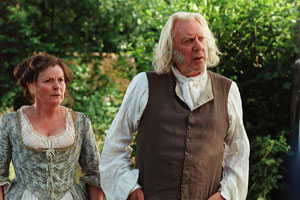 Anyway, so I had a lot of questions, yeah. You have a lot of questions. You have to inform things with a certain amount of truth.
Anyway, so I had a lot of questions, yeah. You have a lot of questions. You have to inform things with a certain amount of truth.
Q: You have to do a lot with a little in this film. Is that hard?
Sutherland: I’ve been doing it all my life with my brain, which is very little.
No, you just have to be truthful. You’re totally at the mercy – or in this case, the joyful mercy – of the director. He was terrific, Joe Wright. It was lovely because in the English version it ends with that scene so that the audience comes out with Lizzie and Mr. Bennett and the family in their heads. They did a bunch of test screenings and they decided that here in the United States they wanted the scene that you have seen added on at the end of it. Which gives a different feeling at the end of the film. But it was fascinating, the reaction of people coming out. It was gloriously happy when we saw it at the Leicester Square Odeon in London. He’s brilliant, Joe. Really a brilliant filmmaker.
Q: You asked Joe what happened to Mr. Darcy and Mr. Bennett after the film is over. What do you think happened in their relationship?
Sutherland: Whatever Joe said. He made the film.
I think they would have been OK. So long as he treated Lizzie OK. I think that would have been the key to everything, how he treated her. It’s like he said, ‘I have more carriages than Jane, but does that matter?’
He was interested in truth, Mr. Bennett. It’s a lovely thing to pursue. One should pursue it with passion.
Q: Mr. Sutherland, you’re a very hardworking man. What is it that drives you to work so much?
Sutherland: My children eat.
I’ve said it so many times that it must be boring for everyone. Joseph Brodsky was giving a commencement speech in 1988. He’s dead now, died in his 50s. He was a Nobel Laureate, a Russian poet, a brilliant, brilliant, brilliant man. Brilliant. Incredibly witty. He was giving a commencement speech at Dartmouth in 1988 and he said, ‘This is the best day of your lives,’ to the graduating class. He said, ‘Everything is going to go downhill from here on in. It’s going to get more boring the more goods you acquire; the more toys you have it’s going to become-‘ And in the middle of it he said the phrase that I carry like a mantra with me. He said, ‘Try to stay passionate. Leave your cool to the constellations. Passion alone is a remedy against boredom.’
So if you’re passionate – and I love what I do. I just love it. Every time I do something it informs me about something else. My wife and I have immense things to talk about. I can’t look at stuff and she looks at it. That’s what so lovely about doing theater, when I do a play she comes every night and we talk about it. It’s a wonderful life. I have had a wonderful life. I have been paid to do this job of acting for over 50 years. I have been paid to work all over the world with the most wonderful artists – writers, directors, producers, composers, editors, actors and actresses. It’s been a wonderful life. I hope it doesn’t end.
Q: What’s your relationship with Kiefer like?
Sutherland: We have a good relationship. Sometimes it’s a little confused, but at the moment it’s wonderful. He has the most lovely daughter; she’s my joy. He’s a wonderful actor. Really terrific.
He did – it must have been fifteen, sixteen years ago now – we were living in Los Angeles, Francine and I, and he came down to my study, a room I sometimes slept in. He stood at the end of my bed, I was reading, and he said, can I do the audition for you that I have to do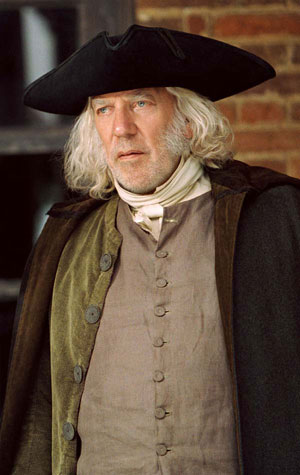 tomorrow? There can’t be any worse words from a son to a father. It’s the most terrifying thing in the world. So I gathered all of my strength and I said, ‘Sure!’ And he did it. And it was breathtaking. It was really wonderful. It was for some television thing.
tomorrow? There can’t be any worse words from a son to a father. It’s the most terrifying thing in the world. So I gathered all of my strength and I said, ‘Sure!’ And he did it. And it was breathtaking. It was really wonderful. It was for some television thing.
I was just overwhelmed and I said, ‘This is terrific!’ He said, ‘Now wait a minute, that’s the way they want me to do it. Now can I show you the way I want to do it?’ And he did it again – it was perfect. It totally and utterly informed me about the character. I can hardly say it without being overwhelmed.
Q: Has your experience taught you not to be too optimistic about Commander in Chief, even with the great early reviews and ratings?
Sutherland: They say you can’t tell anything until the third week. I would have gone for 52 weeks. How do you know? I can only talk about it subjectively. I have no idea about the success or failure or anything.
I once sat with Al Pacino on the top of a film, shotting Revolution, Hugh Hudson’s film. We were looking down at this tableaux of British red-coated soldiers and tents and it was just wonderful. He turned to me and said, ‘I’ve never said this before, but this is going to be really good.’ And it was a disaster. It was a disaster because of the way they cut it. Hugh did a wonderful job, but they cut it for the clouds. Meaning, that instead of cutting for the heart and the gut of the people in the thing, if a cloud passed there they would find a piece of film that matched for the cloud passing there. The heart and soul of it – it was like Francis Ford Coppola doing a film called One From the Heart. It wasn’t from the heart, that was the problem. He directed it from the bloody thing outside, he didn’t have any contact with the actors. He was just looking at video tape. It has to be gut-related. You can have no way of knowing how it will go.
Frank Wells came out, he was a dear man but he’s dead, he came out of a screening of Chariots of Fire, tears streaming down his eyes saying it won’t work. You say, hang on a second, what are those tears? And of course it did work. But that’s not my job. My job is very subjective. If things do work it’s a great gift, and if they don’t work, you think it’s probably your fault.
Q: But can you say that the show is wonderful?
Sutherland: It’s beyond comprehension how happy I am working on it. It’s unbelievable. I’ve always been limited – which has been wonderful – by a beginning, middle and end. And within those parameters I have tried to cut out whatever pieces of truth I can and give them to the director. When you work on the stage, from the beginning to the middle of the end of those two hours, you don’t exist in reality. You’re in a whole other place. I once tore my toenail off 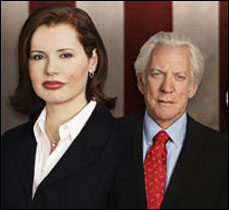 on stage and didn’t feel it until I got offstage.
on stage and didn’t feel it until I got offstage.
But here I’m sitting inside the head or the soul or the creative muse of a Dickens, writing a serialized novel. This could go on forever. I have the character and he’s stuck in my head, and he’s stuck in the head of Rod Lurie and whoever else, and he’s just growing and living.
He has three levels – he has the political level, where he is seen by the public. He has the private thing, the behind the scenes thing, where he deals with his chief of staff. And he’s married to Samantha Agar and they have their relationship. Those three relationships are totally different. You see the difference between mendacity and truth and ambition and failure and rancor. It’s politics and sausage factories.
Q: They’re remaking Don’t Look Now. Do you think that makes any sense at all?
Sutherland: It’s probably not a film I’m going to go see, so they lose a customer. I don’t know. I only heard today that they were going to remake it. Filmmakers are filmmakers, good luck.
Nic Roeg was genius in that particular piece of work.
Q: You also have Ask the Dust coming this year. It’s one of my favorite novels. Can you talk about that a little bit? I thought the casting of Colin Farrell was very… interesting.
Sutherland: I was only there for a couple of days. Robert Towne did change – I was astounded, actually, but we’ll see how it works out – he changes the involvement. The character that Colin plays is outside of it. He’s in it and outside of it. He’s no longer outside of it [in the film]. That was Robert’s choice. I don’t know, I hope it’s good. He’s a lovely actor, Colin, and I have a lot of affection for Robert.
Q: What are your thoughts on remakes in general?
Sutherland: They make sense because it’s a different generation, and every generation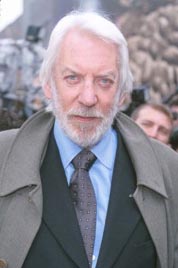 wants to see their particular conveyors of information, the people with whom they have a sympathy, play those characters.
wants to see their particular conveyors of information, the people with whom they have a sympathy, play those characters.
Q: You did remake Body Snatchers.
Sutherland: Precisely. And it worked. They’re different. The thing about Body Snatchers, not the original one, the Don Siegel one – Kevin and Don Siegel took that film, it was an Allied Artists film I think – took it down with a wire recorder and took it to Long Beach and screened it. The audience screamed, and then laughed. Screamed, and then laughed. They were thrilled, they took it back and showed the film and played the wire recording to the Allied Artists people who said, ‘What’s that laughter? Get it out of there!’ And they had to recut the film to get rid of it. A disaster, you know? How can people not understand that laughing and then screaming is the best you could ever ask for?